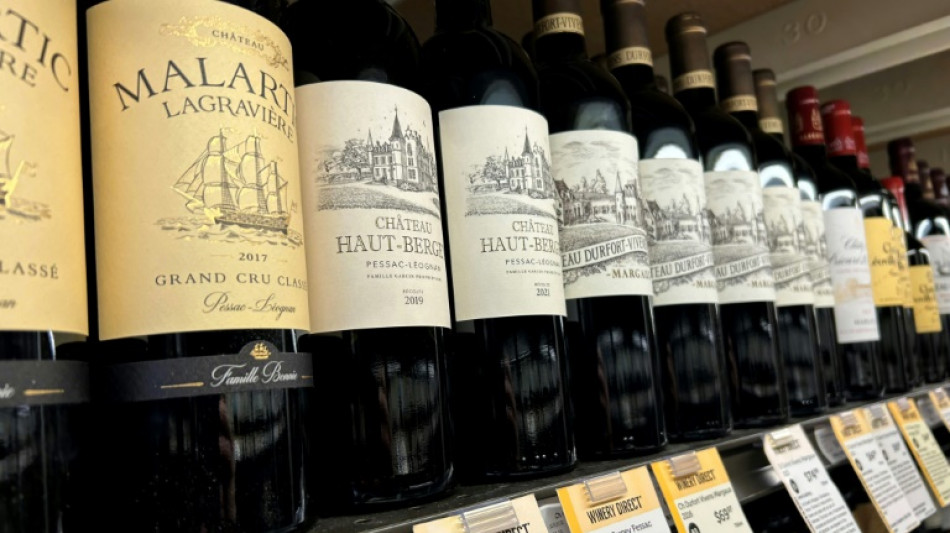
RBGPF
3.9500


From European wines to industrial tools, global tariffs launched by US President Donald Trump this week promise to sweep through the world's biggest economy, impacting everyone from restaurant owners to industrial manufacturers.
For Brett Gitter, who makes his quality control instruments in China-based factories, Trump's planned tariff hike on goods from the country marks a further price surge to potentially startling levels for customers.
"I add a surcharge at the bottom of every invoice to cover the expense of the tariff," he told AFP.
"The bottom of the invoice now is going to say 54 percent," he added, referring to a new rate hitting Chinese imports starting next Wednesday.
All of this stacks on an existing 25 percent rate Chinese imports already faced before Trump returned to the presidency, he said, although he tried to absorb some of the earlier duties.
"That's a lot," he added. "That's going to alarm people."
This week, Trump unveiled a sweeping 10 percent tariff on most US trading partners, set to take effect on Saturday.
He declared that foreign trade practices have caused a "national emergency," imposing levies to boost his country's position.
Additionally, "worst offenders" that have large trade imbalances with the United States will face even higher rates come April 9.
The list covers about 60 partners including the European Union, China, India and Japan.
Gitter said his customers, who are American manufacturers too, will have to decide if they want to foot the higher bill.
"Other countries that have similar types of product have added tariffs too," he said.
"Where does my product made in China fit, and how bad does it take a hit compared to other competitors?"
- 'Frightening' -
Andrew Fortgang, who runs three restaurants and a wine shop in Oregon, worries about Trump's additional 20 percent tariff on European Union imports -- specifically, wine.
The rate is also taking effect April 9.
"Probably 25 percent of our revenue is from imported wine," he told AFP, noting that the steep tariff will bite.
For these sales to vanish would be "really frightening," he said.
Beyond that, "everything from oil, to mustards, cheeses, and meats, they are just not fungible, they are not made here," Fortgang said. "It's going to add up."
While he expects he would be forced to pass on some costs to consumers by hiking menu prices, high inflation after the Covid-19 pandemic have weighed on customers.
"You'll kind of reach a tipping point," he said, "on how much you can raise prices."
US Wine Trade Alliance president Ben Aneff called the plan "a disaster for small businesses."
"Restaurants really rely on large margins in order to effectively subsidize the rest of their business," he said, adding that consumers will likely see higher prices.
"We import about $4.5 billion worth of (wine) from the EU and US businesses make almost $25 billion from those imports. There is no plug for that hole," he told AFP.
Others in the food and beverages sector have already been hit by Trump's multiple waves of tariffs.
Bill Butcher, a craft brewer in Virginia, earlier saw a shortage of glass bottles for his beers when metals tariffs took effect in March -- as industry giants pivoted away from aluminum cans to avoid added costs.
Now, he awaits suppliers' verdict on how much the incoming tariffs on European goods will add to costs for the grains and hops needed in his brews.
"It's just a lot of uncertainty and chaos in our supply chain," he said.
- Hard to relocate -
Gitter, whose business is based in New Jersey, has tried "many times" to relocate production to the United States.
"There's a lack of infrastructure in the US to support what we do," he said.
The printed circuit boards used in his instruments, for example, require chips made in East Asia.
Will Thomas, whose company transforms coils of steel into metal products, added: "We import from necessity, not desire."
While he is not hard hit by Trump's partner-based tariffs this week, earlier 25 percent duties on steel and aluminum imports have eaten away at his profits.
"I'm hoping this is not another nail in the coffin for foreign supply," Thomas said.
"I would just like the leaders of the countries to be able to sit down and work things out."
K.Leung--ThChM